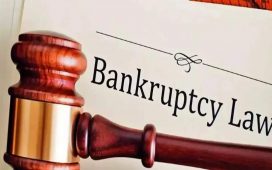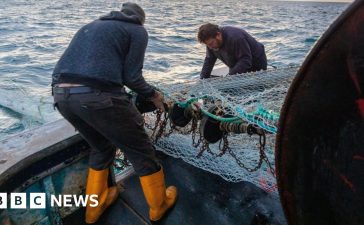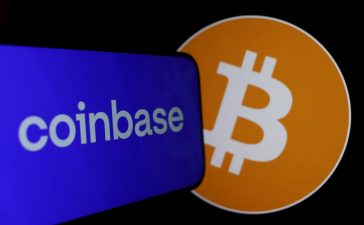In the south-west of Morocco, a sprawl of wind and solar farms stretching across an area the size of Greater London could soon generate the green electricity powering more than 9m British homes.
This is the unflinching vision of Sir Dave Lewis, the former Tesco boss who is hoping to build the world’s longest subsea power cable in order to harness north Africa’s renewable energy sources and power Britain’s clean energy agenda.
If built, a 4,000km cable buried in trenches along the seabed would carry up to 8% of Great Britain’s electricity from renewable energy and battery projects in Morocco’s Tantan province to the Devon coast in under a second.
Combined with Morocco’s perennial sunshine and consistently healthy wind speeds, the project could in theory provide Britain with a predictable and reliable source of renewable energy for about 19 hours a day all year round.
It is an audacious endeavour on which Lewis is willing to stake his reputation. “When people first get to know what we’re doing they say we’re crazy. Then we explain, and they go along this curve until they get to the point where they’re asking ‘Hey, why don’t we do this? Why don’t we already do this?’” he says.
Lewis took up the job of executive chairman at Xlinks, the company behind the plans, in 2020 after carrying out a five-year rescue plan to bring Britain’s biggest retailer back from the brink of collapse. As he prepared to leave the supermarket chain in a “position of strength” he began to look for opportunities to play a role in tackling the climate crisis.
“It would have been very easy to stay at Tesco because in many ways the hard work had already been done. But I do worry about climate change, and I do think we have to do something about it,” he says.
Since then he has been in talks with six energy secretaries over the last four years in the hopes of clinching a deal that would allow the UK-Morocco project to start up by the end of the decade.
The near-constrant stream of clean electricity could begin supplying the energy grid by 2030, he says, in time to power the government’s goal of creating a clean energy system by the end of the decade and meet its new ambition to cut the UK’s carbon emissions by 81% compared with 1990 levels by 2035.
after newsletter promotion
Lewis’s easy confidence in the project, and what it could mean both for the UK and for the Moroccan economy, has not translated into a speedy process of engagement with government officials. It has been more than a year since the government designated Xlinks a project of national significance but Lewis is still waiting for a green light.
Although the project does not need government investment, it does require a contract that guarantees a stable price for the electricity it delivers, which would be paid for through energy bills. Lewis puts this contract price at between £70 to £80 per megawatt hour (MWh) which is less than the deal struck with the developers of the Hinkley Point C nuclear power plant, and in line with the expected cost of future offshore wind farms.
In the meantime, he has galvanised a team of big-name investors from across the energy industry to help raise the £100m required to develop the project. They include the French energy giant TotalEnergies, the Abu Dhabi National Energy Company (TAQA), the investment arm of General Electric, Britain’s Octopus Energy and its founder, Greg Jackson.
Jackson says his only misgiving about the project is that he had not thought of it himself. “If oil and gas companies can build pipelines across the world to pump toxic, leaky substances then we really should be able to run power lines – and it should be easier. It’s eminently feasible but there hasn’t been a political and economic case for it. That’s changing. We have the adoption of renewables across the world. When I heard about Xlinks I wanted to get to know them – I was very keen to personally back them, and Octopus is backing them too.”
Lewis’s lack of energy industry experience is a plus, according to Jackson, who built Octopus Energy from a start-up to a £9bn energy company in under a decade following a career in tech. “When you’re an outsider you can see things more clearly. Dave doesn’t look at things through the lens of outdated regulation. This means he can identify the economics that actually work, then hire a team that includes experts who work deep in the plumbing of the industry who can deliver it,” he says.
The delivery of the project is a likely sticking point for the risk-averse government officials. Britain’s chequered history in rolling out major, one-of-a-kind infrastructure projects haunts Whitehall, and Xlinks itself has already been delayed by a year. But Lewis is determined to make the case that delivering the mega-project is simpler than it might appear.
Each element of the project – the solar farms, windfarms, batteries, high-voltage subsea cables – is tried and tested so scaling up its ambition would be a matter of repetition, he says. He has also secured the project’s supply chains in advance, and could source up to 50% of the cable from a planned cable factory in Scotland if it can get the support of the government.
But even among those who believe that the project could be delivered there would likely still be disquiet over relying so heavily on a foreign country for a significant share of Britain’s energy. On this point, Lewis is pragmatic.
“Forgive my simplistic articulation of this, but we’re an island,” he shrugs. “The idea that the UK could be self-sufficient for just about anything is a fallacy. The UK needs to develop these bipartisan relationships, and it needs to invest in, and protect them. But if the benefit is great enough, why wouldn’t you?”
“There may be challenges but you have to ask whether the magnetic north of the idea is strong enough that it’s worth investing your time and your energy in the pursuit of it. I thought it was, and my commitment to that has only grown as I’ve learned more,” he says.










